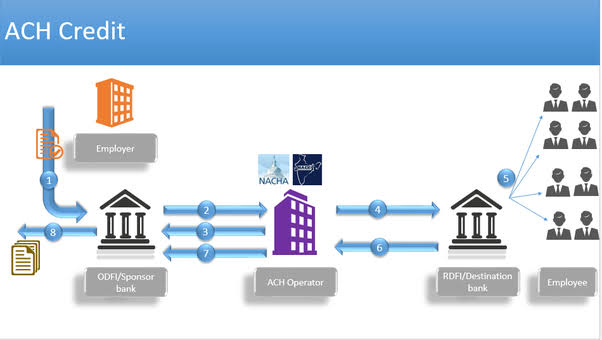What you should know about SEBI? - Securities and Exchange Board of India
The Securities and Exchange Board of India
Securities Exchange Board of India (SEBI) was set up in 1988 to regulate the functions of securities market. SEBI promotes orderly and healthy development in the stock market but initially SEBI was not able to exercise complete control over the stock market transactions.The Securities and Exchange Board of India (SEBI) is the regulator for the securities market in India
"Its Basic function is to protect the interests of investors in securities and to promote the development, and to regulate the securities market and for matters connected there with or incidental there to"
SEBI has to be responsive to the needs of three groups, which constitute the market:
1. Issuers: For issuers it provides a market place in which they can raise finance fairly and easily.
2. Investors: For investors it provides protection and supply of accurate and correct information.
3. Intermediaries: For intermediaries it provides a competitive professional market.
Headquarters
Its headquarters at the business district of Bandra Kurla Complex in Mumbai (Maharashtra), and has Northern, Eastern, Southern and Western Regional Offices in New Delhi, Kolkata, Chennai and Ahmedabad respectively. It has opened local offices at Jaipur and Bangalore.Management of the Board.
The Board shall consist of the following members, namely: -(a) A Chairman;
(b) Two members from amongst the officials of the [Ministry] of the Central Government dealing with Finance
(c) One member from amongst the officials of [the Reserve Bank];
(d) Five other members of whom at least three shall be the whole-time members to be appointed by the central Government.
Chairman- Upendra Kumar Sinha
Powers
For the discharge of its functions efficiently, SEBI has been vested with the following powers:- To approve by−laws of stock exchanges.
- To require the stock exchange to amend their by−laws.
- Inspect the books of accounts and call for periodical returns from recognized stock exchanges.
- Inspect the books of accounts of financial intermediaries.
- Compel certain companies to list their shares in one or more stock exchanges
Objectives of SEBI
The overall objectives of SEBI are to protect the interest of investors and to promote the development of stock exchange and to regulate the activities of stock market. The objectives of SEBI are:
1. To regulate the activities of stock exchange.
2. To protect the rights of investors and ensuring safety to their investment
3. To prevent fraudulent and malpractices by having balance between self regulation of business and its statutory regulations.
4. To regulate and develop a code of conduct for intermediaries such as brokers, underwriters, etc.
Functions of SEBI:
The SEBI performs functions to meet its objectives. To meet three objectives SEBI has three important functions. These are:
i. Protective functions
ii. Developmental functions
iii. Regulatory functions.
1. Protective Functions:
These functions are performed by SEBI to protect the interest of investor and provide safety of investment.
As protective functions SEBI performs following functions:
(i) It Checks Price Rigging:
Price rigging refers to manipulating the prices of securities with the main objective of inflating or depressing the market price of securities. SEBI prohibits such practice because this can defraud and cheat the investors.
(ii) It Prohibits Insider trading:
Insider is any person connected with the company such as directors, promoters etc. These insiders have sensitive information which affects the prices of the securities. This information is not available to people at large but the insiders get this privileged information by working inside the company and if they use this information to make profit, then it is known as insider trading, e.g., the directors of a company may know that company will issue Bonus shares to its shareholders at the end of year and they purchase shares from market to make profit with bonus issue. This is known as insider trading. SEBI keeps a strict check when insiders are buying securities of the company and takes strict action on insider trading.
(iii) SEBI prohibits fraudulent and Unfair Trade Practices:
SEBI does not allow the companies to make misleading statements which are likely to induce the sale or purchase of securities by any other person.
(iv) SEBI undertakes steps to educate investors so that they are able to evaluate the securities of various companies and select the most profitable securities.
(v) SEBI promotes fair practices and code of conduct in security market by taking following steps:
(a) SEBI has issued guidelines to protect the interest of debenture-holders wherein companies cannot change terms in midterm.
(b) SEBI is empowered to investigate cases of insider trading and has provisions for stiff fine and imprisonment.
(c) SEBI has stopped the practice of making preferential allotment of shares unrelated to market prices.
2. Developmental Functions:
These functions are performed by the SEBI to promote and develop activities in stock exchange and increase the business in stock exchange. Under developmental categories following functions are performed by SEBI:
(i) SEBI promotes training of intermediaries of the securities market.
(ii) SEBI tries to promote activities of stock exchange by adopting flexible and adoptable approach in following way:
(a) SEBI has permitted internet trading through registered stock brokers.
(b) SEBI has made underwriting optional to reduce the cost of issue.
(c) Even initial public offer of primary market is permitted through stock exchange.
3. Regulatory Functions:
These functions are performed by SEBI to regulate the business in stock exchange. To regulate the activities of stock exchange following functions are performed:
(i) SEBI has framed rules and regulations and a code of conduct to regulate the intermediaries such as merchant bankers, brokers, underwriters, etc.
(ii) These intermediaries have been brought under the regulatory purview and private placement has been made more restrictive.
(iii) SEBI registers and regulates the working of stock brokers, sub-brokers, share transfer agents, trustees, merchant bankers and all those who are associated with stock exchange in any manner.
(iv) SEBI registers and regulates the working of mutual funds etc.
(v) SEBI regulates takeover of the companies.
(vi) SEBI conducts inquiries and audit of stock exchanges.



Comments
Post a Comment